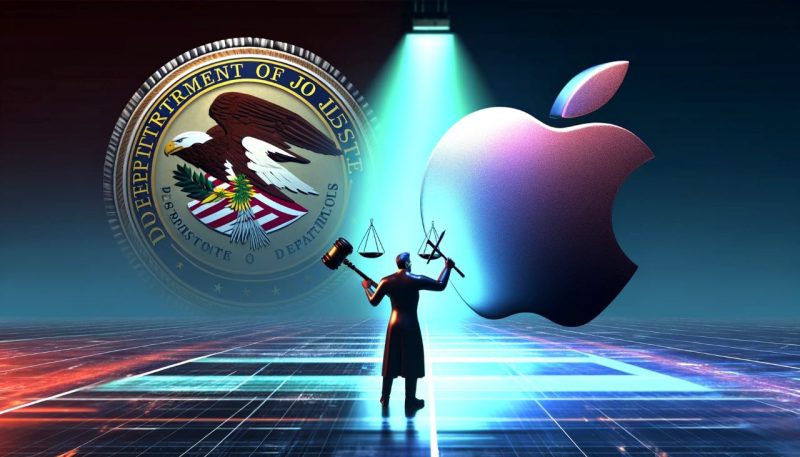
The United States Department of Justice (DOJ) is reportedly advancing toward filing a comprehensive antitrust lawsuit against tech giant Apple Inc. This development follows a prolonged period of investigation by the DOJ into Apple’s business practices, particularly focusing on its control over hardware and software services.
The lawsuit, expected to be filed within the first half of this year, could represent one of the most significant legal challenges faced by the company, echoing broader concerns over the power wielded by major tech companies in the digital age.
At the heart of the DOJ’s investigation are allegations that Apple has abused its market position to stifle competition and maintain an unfair advantage over smaller tech companies. This includes strict control over its App Store, where developers have long expressed frustration over the fees charged by Apple and the company’s tight grip on app distribution and payments. This issue was notably highlighted in the lawsuit filed by Epic Games, the developer behind Fortnite, against Apple, which is currently under appeal.
Furthermore, the DOJ’s scrutiny extends to Apple’s practices that purportedly make it difficult for consumers to switch to competing products and for rivals to compete effectively. This “walled garden” approach, as it is often described, includes how the Apple Watch is integrated more closely with iPhone services than rival wearables and how competing platforms are locked out of iMessage. Executives from various companies, including Beeper and Tile, have reportedly discussed their concerns with the DOJ, highlighting issues such as Apple’s blocking of app integration and competition in the tracking device market.
The potential antitrust lawsuit against Apple comes amid a broader regulatory focus on antitrust issues within the tech industry, with the federal government also pursuing cases against other Big Tech companies like Google, Meta, and Amazon for various anti-competitive practices. These cases underscore the growing tension between the tech industry’s leading companies and regulators over issues of market dominance, competition, and consumer choice.
This impending lawsuit against Apple, if filed, could have far-reaching implications not only for the company but also for the broader tech ecosystem. It may prompt changes in how tech giants operate, potentially leading to more competitive markets and better conditions for consumers and smaller companies alike. The outcome of this legal challenge could also set a precedent for how antitrust laws are applied to tech companies in the future, marking a significant moment in the ongoing debate over the balance between innovation, market dominance, and regulatory oversight in the digital age.
